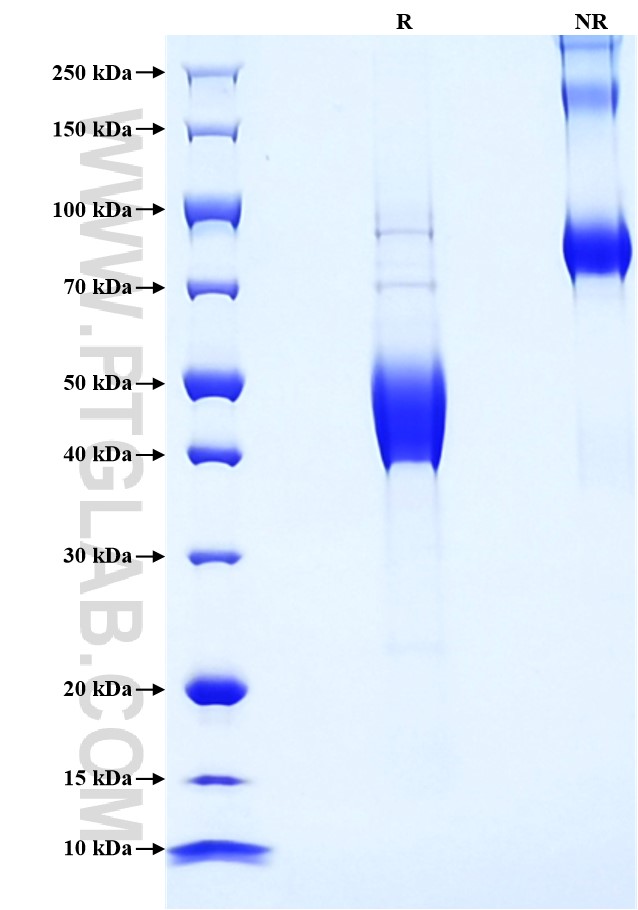Recombinant Human CD3 gamma protein (rFc Tag)
种属
Human
纯度
>90 %, SDS-PAGE
标签
rFc Tag
生物活性
未测试
验证数据展示
产品信息
| 纯度 | >90 %, SDS-PAGE |
| 内毒素 | <0.1 EU/μg protein, LAL method |
| 生物活性 | Not tested |
| 来源 | HEK293-derived Human CD3 gamma protein Gln23-Ser116 (Accession# P09693) with a rabbit IgG Fc tag at the C-terminus. |
| 基因ID | 917 |
| 蛋白编号 | P09693 |
| 预测分子量 | 37.0 kDa |
| SDS-PAGE | 40-55 kDa, reducing (R) conditions |
| 组分 | Lyophilized from 0.22 μm filtered solution in PBS, pH 7.4. Normally 5% trehalose and 5% mannitol are added as protectants before lyophilization. |
| 复溶 | Briefly centrifuge the tube before opening. Reconstitute at 0.1-0.5 mg/mL in sterile water. |
| 储存条件 |
It is recommended that the protein be aliquoted for optimal storage. Avoid repeated freeze-thaw cycles.
|
| 运输条件 | The product is shipped at ambient temperature. Upon receipt, store it immediately at the recommended temperature. |
背景信息
CD3 is a complex of proteins that directly associates with the T cell receptor (TCR). The TCR/CD3 complex of T-lymphocytes consists of either a TCR alpha/beta or TCR gamma/delta heterodimer coexpressed at the cell surface with the invariant subunits of CD3 labeled gamma, delta, epsilon, zeta, and eta. The TCR recognizes antigens bound to major histocompatibility complex (MHC) molecules. TCR-mediated peptide-MHC recognition is transmitted to the CD3 complex, leading to the intracellular signal transduction. CD3 gamma/CD3G is a single-pass type I membrane protein which consists of an extracellular domain of 94 amino acids, a transmembrane region, and a cytoplasmic domain of 45 amino acids. In addition to this role of signal transduction in T-cell activation, CD3 gamma plays an essential role in the dynamic regulation of TCR expression at the cell surface.
参考文献:
1. J Dietrich, et al. (1994) EMBO J. 13(9):2156-66. 2. J Dietrich, et al. (1996) J Cell Biol. 132(3):299-310. 3. E A Padlan, et al. (1997) Curr Biol. 7(1):R17-20. 4. Clifford S Guy, et al. (2009) Immunol Rev. 232(1):7-21.
